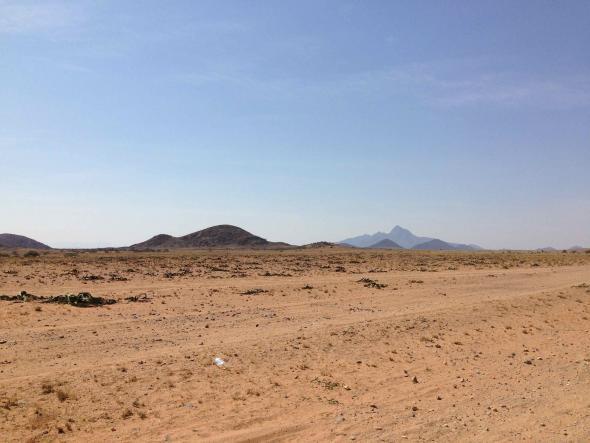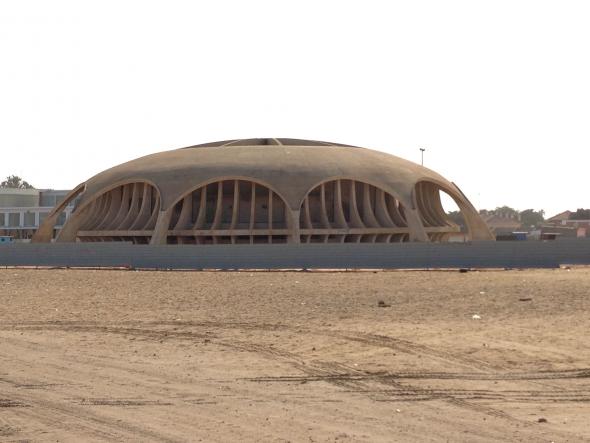Some loose clues about neo-animism proposition
Who’s Ruy Duarte de Carvalho?
(1941-2010) Poet, anthropologist, writer and filmmaker, Ruy Duarte de Carvalho’s life is associated with traveling, which is also one of the favorite themes of his books – among a dozen others themes, his work ranges from poetry, to fiction, essays, anthropology and travel literature, showing interests and subjectivities in the style of a “half-scholar-poetic-traveled-fiction”, in his own words.
Born in Santarém, Portugal, he became Angolan at the same time that the country achieved its independence.
In the 1960s he worked as an agricultural and animal husbandry technician. With this professional occupation he lived and crossed a large part of the Angolan territory, working on the northern coffee plantations, on sheep farms in the province of Benguela, and with traditional agro-pastoral production in the then province of Moçâmedes, currently called Namibe, name of the desert which Angola and Namibia shares.
In November 1975, when the Independence was proclaimed, he filmed the Portuguese flag being replaced by an Angolan flag.
He got his PhD in social anthropology at School for Advanced Studies in the Social Sciences (École des Hautes Études en Sciences Sociales) in Paris with a thesis about the production of cultural difference among fishermen in Luanda’s coast.
He taught social anthropology at several universities such as in Luanda, Coimbra, S. Paulo, Paris, and later in Berkeley.
He published among others works: Vou Lá Visitar Pastores (1999), about the Kuvale, a pastoral society in southwestern Angola; Chão de Oferta (1972), A Decisão da Idade (1976), Lavra, Observação Directa (2000), poetry; Actas da Maianga (2003), essay; Os Papéis do Inglês, As Paisagens Propícias (2005), Desmedida (2007) and A Terceira Metade (2009), [historical] fiction.

The life of Ruy Duarte de Carvalho is intrinsically linked to Angola, and to a militant and critical view of the changes the country went through. He carried out fieldwork among the Kuvale people in the Namib Desert, researching about their forms of social and economic organization and producing plenty of work resulting from that extensive research.
He studied cinema in London and directed several films for the Angolan public television (TPA) and through the Angolan Institute of Cinema, including the famous Nelisita (1982), an ethno-fiction with a cast of Ovanyaneka people. After independence, he wanted to show and make a position for Angolans who did not fill the New/Modern Man archetype, defined as an urban citizen closely related to the western world. He defended a non-ethnographic cinema, arguing that ethnographic cinema crystalizes people, exotifying in particular rural populations by keeping them outside of modernity.

The major points of his overall work are an analytical look at the thought of the world’s Westernization, the consequences and implications of Angola´s civil war, and the various ways to look at Angola, from the inside and from the outside.
He was a lover of Brazilian literature, the territories of Guimarães Rosa and Euclides da Cunha, offering in the book Desmedida,an understanding about the history of the relations between two countries, Brazil and Angola, that were under Portuguese colonization - through a trip along San Francisco’s river in Brazil.
After retirement, he lived his last few years in Swakopmund, in Namibia, in a self-imposed exile, that enabled him to focus on his work while being closer to the desert.
Other narratives: contemporary conditions for a neo-humanist manifest
The vanishing or subordination of alternative knowledge and interpretations of the world means that these alternative perspectives are not considered understandable or as relevant ways of being in the world.
So Carvalho urges to engage with and to give voice to narratives silenced or ignored by dominant ones, which also don’t allow them to have a place in mainstream historiography.
Thus he makes the call to listen to the other, to other worldviews, to emerging voices. In his view, it is time to attend to all sorts of voices that the world still holds, some of which are at risk of disappearance – in everybody´s interest of human diversity.
Economy of balance versus economy of growth
One of the major stands of what Carvalho called the neo-animist proposition is to state the difference between the economy of balance and the economy of growth. The economy of balance is activated by people who dominate their own resources, who do not create inaccessible needs, who are supported in complex social and exchange systems, and whom we might learn from. The economy of growth consists of the capitalist system, lead by the principle of accumulation, always forced to grow. If it does not grow, it collapses, like what is happening now.
For instance, let us consider the shepherds in Southwest Angola following a domestic mode of production. For dominant logics, whether economical or state, in which the world has to be regularly engaged in economic or political modernization projects, the classical pastoral societies carry out an “irrational” economic activity: they don’t send to the integrated market the great amounts of meat they produce and have quite a marginal place in the consumption circuits that make the basis of the world economic system. They are also very difficult to control politically (they move around too much, they are nomads!) and escape quite easily the local administrations as well as to national and central politics practices.

To fight the humanist paradigm and its hierarchized world
“The humanist paradigm, imposed on the human species by way of the complete westernization of the world, and arising from the ideological and idealistic placement of the planet earth on the center of the universe, and of man at the center of all creation and on the side of the divine, as opposed to the rest of nature, seeks to ensure, within creation, a place of election and privilege to humans, necessarily produces places of election and privilege for certain humans and groups of people and incessantly promotes dilemmas that jeopardize the destiny and fate of the human species and even perhaps of the entire creation (without thereby be able to solve or nullify the former dilemmas that gave rise to the subsequent ones). The human species, in general, is currently fully aware of this fact – hence the profusion of catastrophist warnings emerging as part of the present constellation of political and civic actions.” Excerpt from the Neo-animist Decalogue
The Empire contains its own critic. It is self-devouring. We need to create islands of resistance, and other paradigms that uncover, criticize and offer alternatives to the humanist paradigm and to its conception of progress.
Humanism comes from the essential idea of the ancient genesis: that man is not a species from nature, and neither is society; that in the human collectivity nothing is natural. Through this bizarre idea that something called natural can exist as opposed to something else different, the later becoming then supernatural, or extra-natural, the humanist idea creates an absolute distinction between man and the non-human. This distinction aroused from the need Greeks had to find a reason to justify their superiority over slaves. Whoever nowadays establishes his or her thought on this artificial distinction only looks to justify a privileged position in relation to the majority of humankind; seeks to dominate life inviting to a unilateral pathway with the ridiculous name of “transcendence”. A city is as natural as a forest or a beehive full of bees. A human society is as natural as a society of animals.